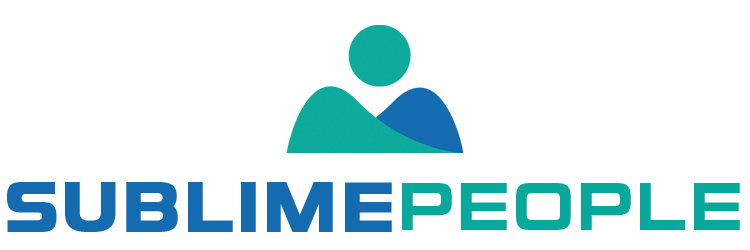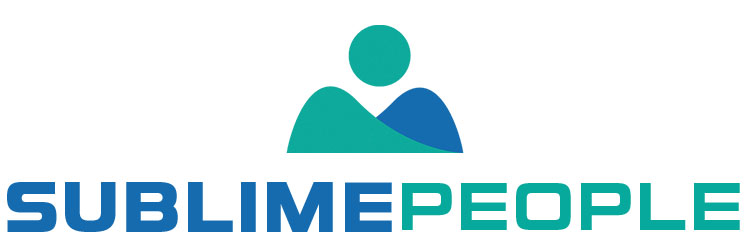Are you looking for the best way to assess potential candidates during your recruitment process? With so much at stake in the hiring process, it’s crucial to ask targeted questions when interviewing job seekers. As an employer or recruiter, it can be difficult to know exactly which questions are most important and what types of inquiries will yield the greatest insights into a candidate’s competency. To help ensure that you make informed decisions on each hire, we’ve compiled a list of top questions to ask an interviewee that should be asked before making a final decision. Keep reading as we explore how to use these interview queries effectively!
In this Article:
What are powerful interview questions?
When considering new employees, one of the most important components is the interview process. It is important to properly vet potential interviewees with relevant interview questions. The top questions to ask an interviewee should focus on both required competencies for the position as well as individual preferences about work styles. Probe into the candidate’s past experiences in similar roles and find out their strengths, weaknesses, and ideal working environment.

The more insight you have into their background and thought process, the more equipped you will be to make a sound decision. Remember: always ask follow-up questions for elaboration. This may give you additional insight into their skill set or attitude. Hence, it will help you determine if they are the best fit for your team. Here are some of the top questions to ask an interviewee so you can make the right hire:
1. What attracted you to apply for this position?
The interviewer can tell if the job seeker is interested in the openings or if they simply applied to the job with blind confidence. You could also look at their experience and ask what would be their reaction to the particular situation.
2. How would your colleagues describe you?
Asking this question helps you understand the candidate’s personality. It also allows the interviewer to evaluate how well the candidate communicates with other team members. Additionally, it will show how they describe themselves to others.
3. What is the best skill you have that sets you apart from other candidates?
These measures will show candidates’ understanding of their roles and what they require. In the absence of any skills chosen, the individual has to decide what skills are important. Example: “I have excellent communication skills and I have an extremely effective communication style if I can communicate via the telephone in person or via email.”
4. Tell me about your current job.
Asking this open-ended question allows the interviewer to gain a better understanding of the candidate’s work experience and how they are currently utilizing their skills in the workplace.

5. What do you know about our company?
This is an important question to ask because it shows the interviewer how much research the candidate did before applying for the job. It also helps to gauge their level of interest in working with your organization.
6. What are your career goals?
This is on of the most classic questions to ask an interviewee. It helps employers understand how the candidate envisions their professional life and what kind of development opportunities they are looking for. It can also provide insight into whether or not the job seeker is a potential long-term hire.
7. How would you handle a difficult situation with a coworker?
This question can help employers assess the candidate’s ability to handle conflict and navigate difficult conversations. It also provides insight into their communication skills and interpersonal relationships.
8. What do you think are your most important qualities?
This question allows employers to get a better understanding of what makes the interviewee unique and how they can contribute positively to the team. It also helps to evaluate the potential employee’s strengths and weaknesses.
9. Reveal something about yourself not on your resume
Some employees may have quirks that can’t be seen in resumes. Asking this question gives employers insight into the candidate’s personality and how they can bring something unique to the team. It also helps to ensure that the job seeker is a good fit for the company culture.

10. What do you think are the most important qualities of a successful employee?
This question is beneficial in determining whether or not a potential hire possesses the skills and qualities that you are looking for. It can also provide valuable insight into how a candidate views themselves professionally and if they have the right attitude to succeed in their new job. Most candidates should be able to demonstrate leadership, excellent communication skills, an understanding of their role within the company, and a strong work ethic.
11. Describe your ideal workspace
This question provides employers with valuable insight into the type of work environment the candidate prefers. It helps to determine if they will be comfortable in their new job and if they have a strong understanding of how to manage their time efficiently.
12. What is the first thing you would do if hired?
It is an important question when choosing a final candidate when a short list of candidates is chosen for interviews. It’s useful in a few ways: a second chance to show how well the interviewee understood the job. Second, you understand their goals in a very good manner. It also provides insight into how a candidate performs in a specific role.
13. What excites you most about this position?
This question can help employers better understand the candidate’s enthusiasm and passion for the job. It also allows interviewers to get a sense of how well they would fit into the company culture.
14. What do you think is essential for success in this role?
Whether it’s communication skills, problem-solving, or technical experience, asking this question helps employers evaluate the candidate’s ability to succeed in the job and make a valuable contribution to the team. It also helps them determine if they are a good fit for the position.

15. What do you feel are your top strengths?
This question allows employers to evaluate the candidate’s potential skill sets and gives them an idea of how they can contribute to the team. It also helps the interviewer get a better understanding of what type of valuable asset they will be bringing to the company.
16. How do you handle tight deadlines?
This question can help employers determine if the interviewee is capable of juggling multiple tasks and working under pressure. It also gives them insight into how well the candidate can prioritize and handle stressful situations.
17. How would your current boss describe you?
This question can help employers get a better understanding of the candidate’s work style and their relationships with their current team. It gives them insight into whether or not the job seeker is a potential long-term hire.
18. What do you think are the most important questions to ask an interviewee?
This question provides employers with valuable insight into how well the candidate understands the job market and what questions should be asked to get the best out of an interview. It also gives them insight into their knowledge of the hiring process and their ability to evaluate candidates.
19. What do you think is most important for career development?
This question allows employers to get a better understanding of the candidate’s professional goals and interests. It provides insight into their ability to grow professionally and any existing professional development opportunities they may pursue.
20. What do you believe is the most important thing when interviewing?
This question gives employers insight into the candidate’s understanding of the interview process and what they consider to be important qualities in a potential employee. It also helps them determine if they have a strong grasp of what is needed to be successful in the interview and hiring process.
21. What are some weak points you can work on?
All employers need someone with weak qualities, and during a quick and effective interview, they may admit their weaknesses as they are the most important.

22. How do you define hard work in the workplace?
This question helps employers determine the candidate’s values and ideals of hard work in the workplace. It is also a great opportunity to understand how well the potential employee understands what goes into maintaining top performance, such as dedication and commitment.
23. How do you handle communication with other departments?
Having good communication skills is essential for any job seeker. This question gives the interviewer an understanding of how well the candidate can communicate with other departments and colleagues, as well as any challenges they face when doing so.
24. What do you think are some wrong answers to job interview questions?
Wrong answers to job interview questions include being overly confident or arrogant, providing too much personal detail, lying about qualifications or experience, not having an answer prepared for common questions, and providing negative feedback about former employers. A wrong answer can indicate a lack of professionalism and not being the right fit for the job.
25. Give an example of a project that you owned and what the process was like from start to finish
Asking for specific examples of projects that an employee has been involved in can give an insight into the level of responsibility an applicant has taken on previously. The question can also be helpful for people who have asked follow-up questions about what they find most satisfying or difficult about the work they have performed.
26. What is the best way to deal with a decision you disagree with?
We can’t always please everyone. Conflicts can occur in different ways but learning how the candidate responds to reluctance can tell whether a candidate is an acceptable candidate to work on the role. Similarly, respecting a conflicted position will show a sense of ownership or interest and can be very beneficial to your company as a whole.

27. How do you describe your past colleagues?
Understanding a candidate’s personality is essential for how good they will be at work in the position they have applied for. Although the likelihood of an employee telling negative qualities of their past colleagues may be low, it could indicate that the candidate can’t be a team player.
28. What kind of people do you have trouble interacting with? How do you deal with them?
Asking people for opinions about people that find it hard can help determine if they can handle the person they are talking with honestly or not. Even those who, like everyone, have different personality characteristics find it more difficult. A person’s answer may not suit the person with whom he or she will interact closely. Many people will try and keep their answers private, so having a clear answer will be a good advantage in this respect.
29. Give an example of a time when you improved or optimized an outdated process.
A candidate with the capability to pinpoint potential areas for improved processes, roles, or within a business is a valuable resource. Creative processes-focused employees have a greater chance of taking over their position and offering innovative ideas to help the entire organization. Asking for examples of time spent optimizing processes is not confined to the experience either. While that might be your ideal response, any answer that displays exceptional problem-solving skills should be considered.
30. Tell me the typical role in a team.
These questions give you an understanding of how employers view interviewees, as well as how a prospective candidate might relate to other employees.
31. Why do you want to leave your current employer?
Please watch how they demonstrate respect for the current boss. This type of scrutiny gives you more insight into the way these candidates treat your manager as well as other colleagues in your organization.
32. How do you deal with tight deadlines?
For interview participants the best answer is the following: “I look up a task list analyzing the most important and crucial questions. I then concentrate fully on each task until I have completed all of them.”

33. What is the best skill you want to improve?
The top questions to ask an interviewee are designed to help the hiring manager better understand their potential employee and evaluate candidates for a new job. With this question, you can gain insight into a candidate’s personality, communication skills, and career development goals. It is also important to discover whether a potential hire has strong communication skills and if their current company is providing them with adequate professional development. By asking this question, you can better understand if the candidate and the hiring manager are on the same page about job requirements, company culture, and career paths.
34. What are your greatest strengths in a company?
Having a strong attitude and maintaining an underlying sense of humility are strong indicators of a winning personality. This allows interviewees to explain their strengths for the positions they want to fill. They can also show qualities that can contribute to the company’s objectives.
35. Do you work better independently or as part of a team?
This is one of the most important questions to ask an interviewee. It is particularly important for positions that involve more individuals working on their own or working together. The answers given by each applicant will determine the best fit for your organization according to the job requirement. Example: “I have both independent and teamwork experience, and I can easily work in both settings.”
36. Who is the best candidate for this position?
It’s a big question in many ways. This question is useful to discuss qualifications that suit well for the job. It provides an opportunity to identify any qualifications not listed on the resume that are likely essential to the position. In addition, the questions ensure that the candidate understands the role and the skills needed for success on the job.

A word from SublimePeople
The questions we’ve listed can help you to get a better understanding of how the interviewee thinks, works, and solves problems. By taking the time to ask these questions, you are well on your way to making the right hire for your business. However, during the process, avoid illegal interview questions, such as those regarding a candidate’s age, religion, or nationality. Also, don’t ask questions that can be seen as discriminatory in any way. Hiring the right person for the job is essential for any business to succeed – so make sure you have in mind the right questions to ask an interviewee.
Click here to read more about the interviews and recruitment.




